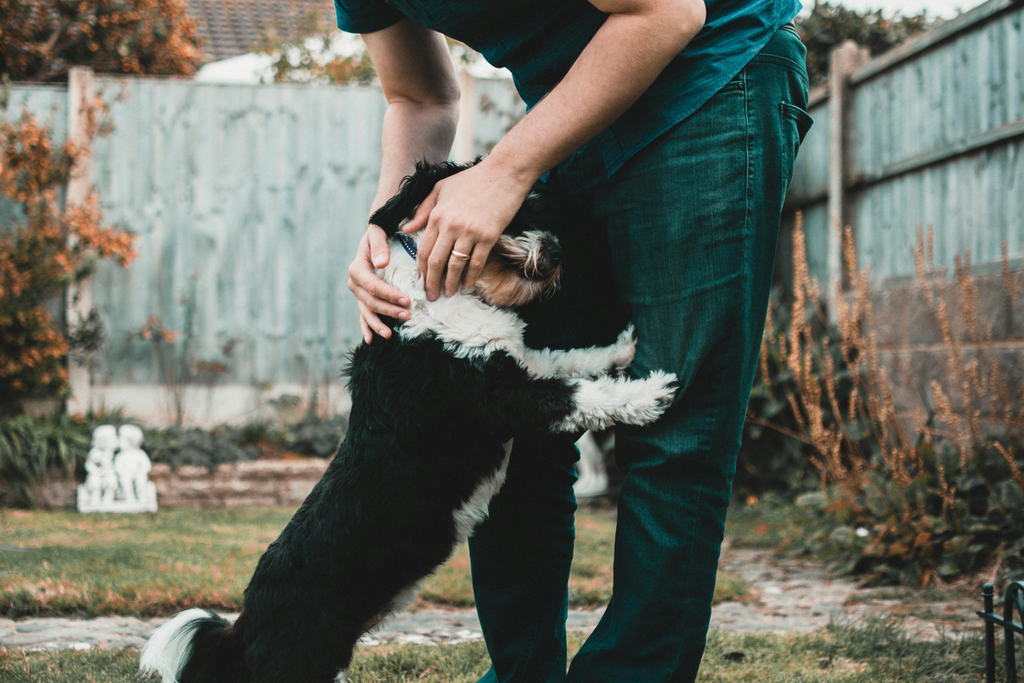5 Things YOU NEED To Know About Pancreatic Cancer in Dogs 2024
While pancreatic cancer in dogs is relatively rare, there is still a small chance that your pet could be afflicted with this serious disease at some point in his life. Akin to all types of canine cancers, it is best detected or caught early so you can choose the best treatment option for your beloved pooch.
It is crucial to remember that failing to give your dog the medical treatment and attention he needs during pancreatic cancer—also referred to as pancreatic adenocarcinoma—can lead to extremely grave consequences and may even be fatal.
Demystifying pancreatic adenocarcinomas in dogs
We've put together this blog post to walk you through the most important things to know about canine pancreatic cancer and how it will affect your dog's body. We will also touch on the symptoms, the possible causes, as well as how this disease is diagnosed.
Finally, we will be discussing the treatment options you can go for when it comes to dealing with this disease.
And unlike what a lot of pet parents mistakenly think, conventional courses of action like surgery, radiation therapy, and chemotherapy are not just your only choices for helping your dog overcome cancer of the canine pancreas.
Please refer to our complete guide to dog cancer to learn more about the various cancers affecting dogs. Again, we'd just like to emphasize that while instances of canine pancreatic cancer are typically rare cases, being in the know is a must for dog parents.
#1: What Is Pancreatic Cancer (Adenocarcinoma) In Dogs?
 Pancreatic cancer in dogs takes place when abnormal cells multiply and affect the pancreatic tissue. Given that a dog's pancreas produce digestive enzymes and endocrine cells, this serious health problem can lead to gastrointestinal upset and disrupt certain physiological functions.
Pancreatic cancer in dogs takes place when abnormal cells multiply and affect the pancreatic tissue. Given that a dog's pancreas produce digestive enzymes and endocrine cells, this serious health problem can lead to gastrointestinal upset and disrupt certain physiological functions.
Besides resulting in either very low blood sugar or too much insulin, dogs diagnosed with pancreatic adenocarcinoma will also be typically prone to issues concerning the small intestine (particularly in the case of exocrine pancreatic insufficiency), the liver, and the lymph nodes, among other organs.
Types of Canine Pancreatic Cancer
There are four (4) main types of pancreatic cancer that your dog may be at risk of, which are as follows: adenocarcinomas, insulinomas, gastrinomas, as well as glucagonomas. These often stem from "malignant" pancreatic tumors or neuroendocrine tumors and will disrupt your pet's ability to ideally produce endocrine cells and exocrine cells.
They affect different areas of the pancreas, too. For example, insulinomas occur in and around the right lobe of the pancreas. Pancreatic insulinoma will also lead to excessive insulin secretion, which can have a negative effect on your dog's blood sugar.
While there are also non-cancerous or "benign" tumors that affect the pancreas, these occur a lot less commonly compared to their cancerous counterparts. It is crucial to take note that the prognosis could be dire if your pet is diagnosed with cancer of the pancreas a bit too late.
#2: The Causes of Pancreatic Cancer
 As with most cancers, it’s hard to say what exactly causes pancreatic cancer. However, these are the "risk factors" that seem to be linked with the development of pancreatic adenocarcinoma and similar cancers that affect a dog's pancreas:
As with most cancers, it’s hard to say what exactly causes pancreatic cancer. However, these are the "risk factors" that seem to be linked with the development of pancreatic adenocarcinoma and similar cancers that affect a dog's pancreas:
Age
A dog's overall immune response will naturally slow down during his senior years. This makes him more vulnerable to disease and illness, including pancreatic tumors and cancer in dogs. Make sure you boost your pet's immune system health as early as now.
Underlying health issues
Wellness problems like diabetes and obesity may result in the development of other diseases for your pooch. These may include the onset of a pancreatic tumor or pancreatic adenocarcinoma, not to mention issues with the liver, the heart, and other organs. Detoxifying your dog's body regularly helps keep it in tiptop shape.
Breed and heredity
Statistics show that female dogs seem to be more susceptible to pancreatic cancer and tumors. Certain breeds like Airedale Terriers, Boxers, Golden Retrievers, German Shepherds, and Labrador Retrievers also have a high chance of getting a positive diagnosis for pancreatic adenocarcinoma or a similar cancer in dogs.
Environmental factors
Constant exposure to harmful chemicals—whether directly or indirectly—may trigger the disease process of pancreatic cancer. These include oven cleaners, antifreeze, cigarette smoke, and emissions from vapes. It is crucial to remember that ingestion of some of these substances may even have fatal consequences in dogs.
#3: What is the Difference Between a Pancreatic Tumor and Pancreatic Cancer?
 Although some people mistakenly use the terms "pancreatic cancer" and "pancreatic tumor" interchangeably, they are not one and the same. The former involves the proliferation of abnormal cells, while the latter has to do with abnormal growth.
Although some people mistakenly use the terms "pancreatic cancer" and "pancreatic tumor" interchangeably, they are not one and the same. The former involves the proliferation of abnormal cells, while the latter has to do with abnormal growth.
However, both health issues can have a huge effect on the ideal production of digestive enzymes and exocrine cells. These may disrupt normal insulin levels and affect the functions of other organs like the liver and the gastrointestinal tract (such as in the digestion of complex carbohydrates). Glucose levels may also be distressed in this situation.
Additionally, surgical removal (as in the case of partial pancreatectomy) may be resorted to in both instances, aside from other conventional treatment options like chemotherapy and radiation therapy.
#4: Do Pancreatic Tumors Automatically Become Pancreatic Cancer?
The short answer is no.
The presence of a tumor in the pancreas does not automatically mean that your dog will already be subsequently diagnosed with pancreatic adenocarcinoma or similar cancer. However, it is still important to monitor clinical signs and consult with a veterinary oncologist to have a definite diagnosis.
#5: What Are The Symptoms of Pancreatic Cancer In Dogs?
 Depending on the type of tumor, the risk factors involved, as well as other possible triggers, the indicators of pancreatic cancer in dogs and other symptoms might be different from case to case. The most common symptoms are provided below:
Depending on the type of tumor, the risk factors involved, as well as other possible triggers, the indicators of pancreatic cancer in dogs and other symptoms might be different from case to case. The most common symptoms are provided below:
Signs of canine insulinoma
Insulinomas cause the pancreas to produce more insulin and lower the blood sugar. Most tumors of this type may have the following symptoms:
-
Lethargy
-
Weakness
-
Seizures or sudden collapse
-
Weight loss
Signs of canine pancreatic adenocarcinoma
Adenocarcinomas have symptoms that are harder to identify. They tend to show signs of pancreatitis (inflammation of the pancreas), such as:
-
Loss of appetite and weight loss
-
Vomiting
-
Abdominal pain
-
Chronic diarrhea
Regardless if it involves the symptoms of pancreatic adenocarcinoma or insulinoma, certain technical procedures must be conducted during their early stages to arrive at a proper and accurate diagnosis. These include diagnostic tests like blood tests, abdominal ultrasound, diagnostic imaging like CT scan, or a tissue biopsy.
Moreover, a veterinary pathologist may also recommend other tests to anticipate the possible clinical outcome or prognosis of dogs that have pancreatic adenocarcinoma or insulinoma, as well as those that have pancreatic tumors or tumors.
#6: How Long Can a Dog Live With Pancreatic Cancer?
 If we're being honest, the life expectancy of dogs with canine pancreatic cancer is generally anywhere from 6 months to 2 years, depending on the severity of the cancer and the treatment plan used, based on comparative oncology.
If we're being honest, the life expectancy of dogs with canine pancreatic cancer is generally anywhere from 6 months to 2 years, depending on the severity of the cancer and the treatment plan used, based on comparative oncology.
Sadly, since dogs have a knack for hiding pain and discomfort, this serious disease is often discovered when it is already in its advanced stages and has metastasized (spread) to other areas of the body.
In many cases, the cancer moves to the lymph nodes, liver, and small intestine. A bad prognosis is often expected when dogs that have pancreatic cancer reach this point—despite already undergoing radiation therapy, chemotherapy, surgery, or a combination of these.
#7: How is Pancreatic Cancer In Dogs Treated?

As emphasized earlier, the typical treatment options available for pancreatic cancer in dogs include conventional means like chemotherapy, surgery, or a combination of the same. A veterinary oncologist is usually the one performing these treatment strategies.
Just to recap, these are often resorted to right after proper diagnosis through the conduct of diagnostic tests like a CT scan, abdominal ultrasound, diagnostic imaging, and blood tests, among others.
But here's the thing. These treatment options are not just going to subject your beloved dog to a lot of pain and discomfort (like in the case of invasive surgery), but also make him vulnerable to adverse side effects.
A natural and more gentle option that you can go for
PIPTOPET is a homeopathic treatment for cancer in dogs.
It is made from a mushroom called Fomitopsis betulina which is seen to have highly viable anticancer properties. PIPTOPET is designed to boost your pet's overall immune system health so he can overcome pancreatic cancer naturally.
Besides helping keep your dog's immune response ideal, this premium natural product is also formulated to provide antioxidative and detoxifying benefits. If you're looking for a more natural option that helps your pet fight health problems without unwanted side effects, PIPTOPET is a product that you should consider.
You can also schedule an online consultation with a pet homeopathy expert if you have more questions about properly and naturally dealing with pancreatic cancer in dogs.






Leave a comment